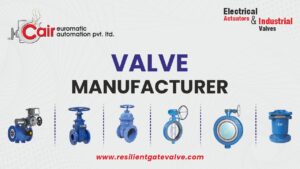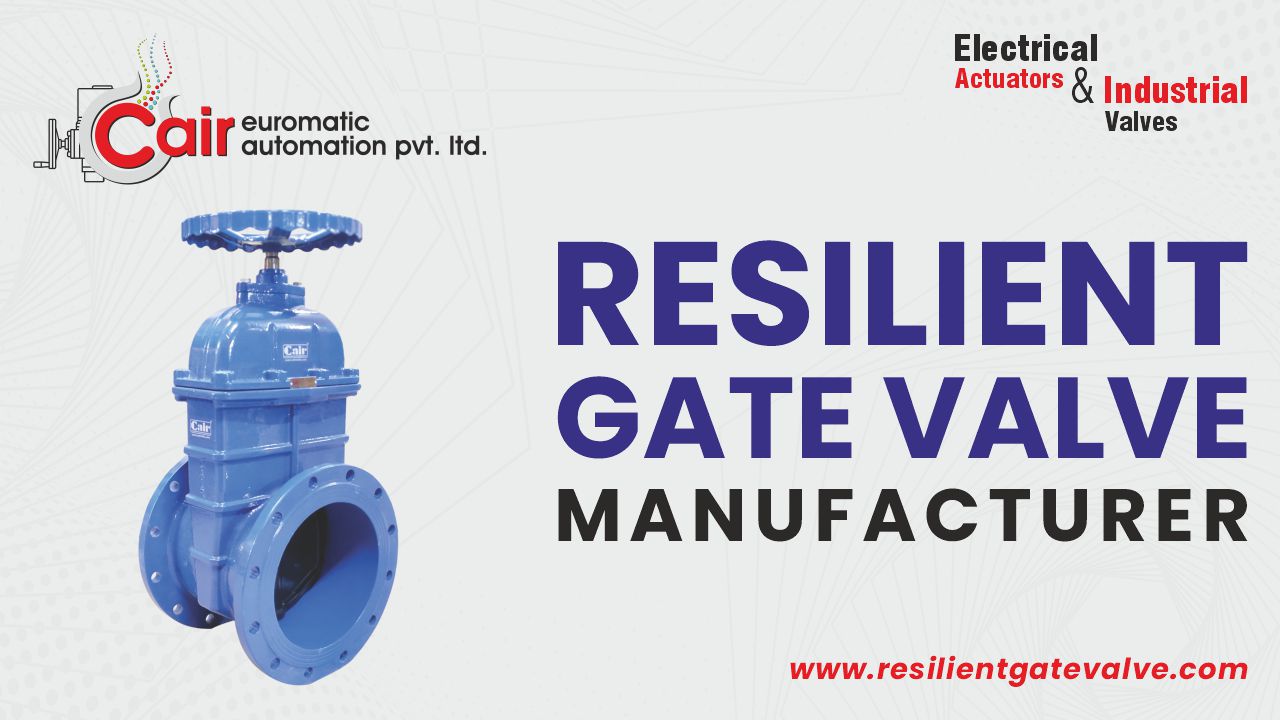Why Gate & Sluice Valves Are Trusted Essentials for Liquid and Gas
Pipelines are the lifeline of industries that handle water, sewage, oil, gas, and other fluids. For these systems to work efficiently, valves play a critical role in controlling, regulating, and ensuring safe flow. Among the many valve types available, gate valves and sluice valves stand out as trusted essentials. Known for their reliability and durability, they have become a top choice in modern liquid and gas pipeline infrastructure.
In this article, we’ll explore the role of gate and sluice valves, their benefits, applications, and the key factors to consider when selecting the right one.
The Role of Gate and Sluice Valves in Modern Pipelines
Gate and sluice valves are designed to provide on/off flow control in pipelines. Unlike valves that regulate flow partially, these valves are primarily used to either allow the full flow of liquid/gas or to completely stop it.
They operate by lifting or lowering a wedge (or gate) inside the valve body, making them ideal for situations where a tight seal is necessary. Their ability to handle high-pressure and large-diameter pipelines makes them an essential component in industries like water supply, sewage treatment, oil and gas, and power generation.
Modern infrastructure relies heavily on these valves because they:
-
Provide full bore flow, reducing pressure drop.
-
Can handle a wide range of pressures and temperatures.
-
Offer long-term service life with proper maintenance.
Key Benefits of Using Gate & Sluice Valves for Flow Control
Gate and sluice valves are not just popular by chance—they provide measurable benefits that industries depend on.
What Makes Gate Valves Reliable for Liquid Pipelines?
Gate valves are widely trusted in liquid pipelines because they:
-
Allow unobstructed flow when fully open.
-
Minimize fluid resistance, making pumping more efficient.
-
Deliver a tight seal when closed, preventing leaks.
This makes them a preferred choice in water distribution networks and industrial fluid systems where clean, efficient flow is essential.
Why Sluice Valves Are Preferred in Gas Networks
Sluice valves, often used interchangeably with gate valves, are especially valuable in gas pipeline systems. They are:
-
Designed for durability under high-pressure conditions.
-
Capable of handling large volumes without compromising safety.
-
Effective in emergency shut-off situations where reliability is critical.
For industries that rely on natural gas, LPG, or refinery pipelines, sluice valves are an essential safety measure.
Durability and Long-Term Cost Savings
Both valve types are built with robust construction that allows them to withstand harsh working conditions. Although the initial investment may be higher than some alternatives, their low maintenance needs and long service life result in overall cost savings.
Ensuring Safety and Efficiency in Pipeline Systems
Safety is non-negotiable in pipeline operations. Gate and sluice valves contribute by:
-
Preventing leaks and contamination.
-
Allowing quick shut-off in emergencies.
-
Enhancing overall system efficiency with minimal flow loss.
Applications in Water, Sewage, and Gas Distribution
The versatility of gate and sluice valves is seen in their wide applications across industries:
-
Water Supply Systems: Used in municipal water pipelines to ensure smooth distribution and quick isolation during maintenance.
-
Sewage Treatment Plants: Handle wastewater flow efficiently, even in harsh environments.
-
Oil & Gas Industry: Essential for transporting petroleum and natural gas safely.
-
Power Plants & Industrial Units: Ensure reliability in cooling systems, steam pipelines, and chemical handling.
Their adaptability makes them one of the most widely used valve types worldwide.
 Choosing the Right Valve for Reliable Performance
Choosing the Right Valve for Reliable Performance
Selecting the correct valve for your project ensures efficiency, safety, and long-term reliability.
Material Selection for Different Pipeline Conditions
Valves are manufactured using materials such as cast iron, ductile iron, stainless steel, and alloy steel. The choice depends on:
-
Fluid type (water, sewage, gas, oil).
-
Pressure and temperature conditions.
-
Corrosion resistance requirements.
Maintenance Practices for Gate & Sluice Valves
While these valves are generally low-maintenance, regular checks can significantly extend their life. Maintenance should include:
-
Inspecting seals and wedges for wear.
-
Lubricating moving parts where required.
-
Ensuring proper operation during scheduled shutdowns.
Common Mistakes to Avoid in Valve Selection
To avoid costly downtime, engineers should avoid:
-
Choosing the wrong size for the pipeline.
-
Ignoring pressure/temperature ratings.
-
Overlooking material compatibility with the fluid.
By considering these points, industries can achieve maximum efficiency and safety.
Conclusion
Gate and sluice valves manufacturer in india have earned their reputation as trusted essentials in liquid and gas pipelines. Their ability to provide reliable flow control, durability, and safety makes them indispensable across water supply, sewage, oil, and gas industries. With the right material choice and proper maintenance, these valves ensure long-term, cost-effective performance.
For industries that cannot afford downtime or safety risks, gate and sluice valves remain a cornerstone of reliable pipeline infrastructure.













